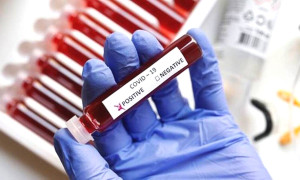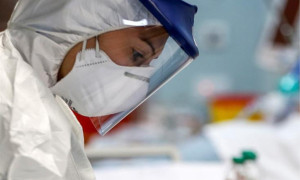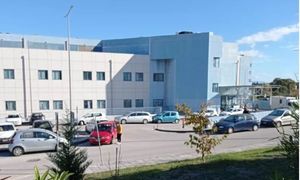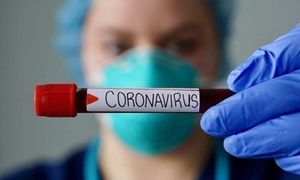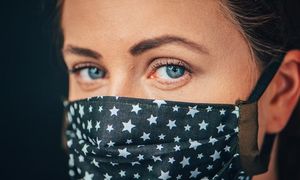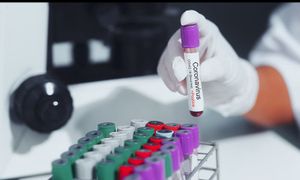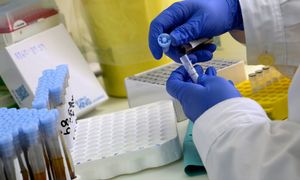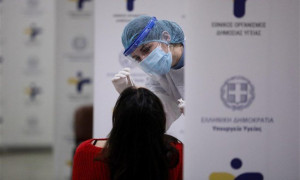15 new cases of coronavirus in Greece today - total of 148 deaths

coronavirus
07 May 2020
/ 19:01
ATHENS. There was one death from coronavirus today, taking the total to 148.
In today's update Prof. Sotiris Tsiodras said that there were 15 new confirmed cases of coronavirus today, taking the total to 2,678.
603 of the cases are connected to arrivals from abroad and 1,340 are from contacts with known cases. 56% are males.
Of the 15 new cases, the contacts for 9 are still being traced.
There are 33 patients in ICUs, with an average age of 67 - 8 of them are females. 97% of those in ICUs have underlying conditions or are over 70.
Virus mutations
Prof. Tsiodras talked about new scientific data and stressed that it is "highly unlikely" that the virus was circulating very much before the first case was registered - before the end of 2019, in other words.
Regarding information about mutations of the virus, Prof. Tsiodras said that "we don't know how the progress of the virus will be affected by these changes".
"According to genetic data, the virus emerged at the end of 2019. It had a common root in the coronaviruses which passed from animals to humans. There are some areas in which the virus has the smallest changes."
The epidemic starts from a lot of weak zeros - in the UK, for example, the virus 'invaded' a lot of times from a lot of patients.
Regarding conspiracy theories
"The scientific data doesn't support the conspiracy theory that it was produced in a lab. In some areas where the virus exists there are less mutations and we need to study these areas where it is steady in more depth in order to find a vaccine or drug."
Encouraging signs for the vaccine
The professor of infectious diseases referred to an article in Science about a vaccine being tested on guinea pigs and said, "The results were encouraging."
"One of the vaccines for the new virus that was tested," he said, "was effective in protecting the guinea pigs and the study was published in the magazine Science, one of the most important scientific magazines in the world.
"It is the first reference to a study with guinea pigs which tests one of the new possible vaccines. The researchers the virus from patients, they regenerated it and used it as a vaccine on guinea pigs such as mice and monkeys. Once they had been vaccinated with two different doses they were infected with different types of coronavirus. The animals which had been vaccinated with the large dose didn't show symptoms and the virus was cleaned from their lungs. The vaccine was safe and this data supports the possibility of the speedy development of a vaccine for humans."
603 of the cases are connected to arrivals from abroad and 1,340 are from contacts with known cases. 56% are males.
Of the 15 new cases, the contacts for 9 are still being traced.
There are 33 patients in ICUs, with an average age of 67 - 8 of them are females. 97% of those in ICUs have underlying conditions or are over 70.
Virus mutations
Prof. Tsiodras talked about new scientific data and stressed that it is "highly unlikely" that the virus was circulating very much before the first case was registered - before the end of 2019, in other words.
Regarding information about mutations of the virus, Prof. Tsiodras said that "we don't know how the progress of the virus will be affected by these changes".
"According to genetic data, the virus emerged at the end of 2019. It had a common root in the coronaviruses which passed from animals to humans. There are some areas in which the virus has the smallest changes."
The epidemic starts from a lot of weak zeros - in the UK, for example, the virus 'invaded' a lot of times from a lot of patients.
Regarding conspiracy theories
"The scientific data doesn't support the conspiracy theory that it was produced in a lab. In some areas where the virus exists there are less mutations and we need to study these areas where it is steady in more depth in order to find a vaccine or drug."
Encouraging signs for the vaccine
The professor of infectious diseases referred to an article in Science about a vaccine being tested on guinea pigs and said, "The results were encouraging."
"One of the vaccines for the new virus that was tested," he said, "was effective in protecting the guinea pigs and the study was published in the magazine Science, one of the most important scientific magazines in the world.
"It is the first reference to a study with guinea pigs which tests one of the new possible vaccines. The researchers the virus from patients, they regenerated it and used it as a vaccine on guinea pigs such as mice and monkeys. Once they had been vaccinated with two different doses they were infected with different types of coronavirus. The animals which had been vaccinated with the large dose didn't show symptoms and the virus was cleaned from their lungs. The vaccine was safe and this data supports the possibility of the speedy development of a vaccine for humans."





